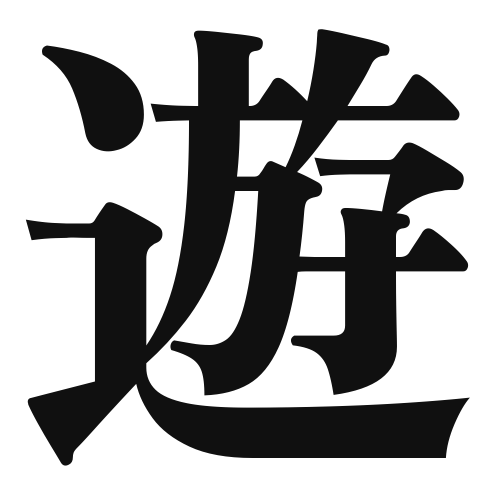1. Overview of Meaning
The kanji “遊” (yū) means “to play” or “to have fun.” It conveys the idea of engaging in enjoyable activities, often associated with leisure and recreation.
2. Formation and Radical
The kanji “遊” is a compound character (会意文字) that combines elements to convey its meaning. It consists of the radical 氵 (water) and the character 悠, which suggests a sense of flowing or leisurely movement.
The radical 氵 indicates a connection to water, which can symbolize fluidity and freedom, enhancing the idea of playful activities.
3. Examples of Usage
Common words and phrases that include “遊” are:
- 遊び (asobi) – play, game
- 遊園地 (yūenchi) – amusement park
- 遊ぶ (asobu) – to play
Example sentences in daily conversation:
- 子供たちは公園で遊んでいます。
The children are playing in the park. - 週末に友達と遊びに行きます。
I will go out to play with my friends this weekend.
4. Synonyms and Antonyms
Similar kanji with related meanings include:
- 楽しむ (tanoshimu) – to enjoy, which emphasizes the enjoyment aspect rather than the act of playing.
- 遊戯 (yūgi) – game, which refers more specifically to structured play.
Antonyms include:
- 働く (hataraku) – to work, which represents the opposite of leisure and play.
5. Cultural and Historical Background
The kanji “遊” is deeply rooted in Japanese culture, where play and leisure are valued as essential parts of life. Traditional Japanese games and festivals often incorporate elements of play, reflecting the cultural significance of “遊.”
Proverbs and idiomatic expressions related to “遊” include:
- 遊び心 (asobigokoro) – a playful spirit, which encourages creativity and enjoyment in life.
- 遊びは学びの母 (asobi wa manabi no haha) – play is the mother of learning, highlighting the importance of play in education.
